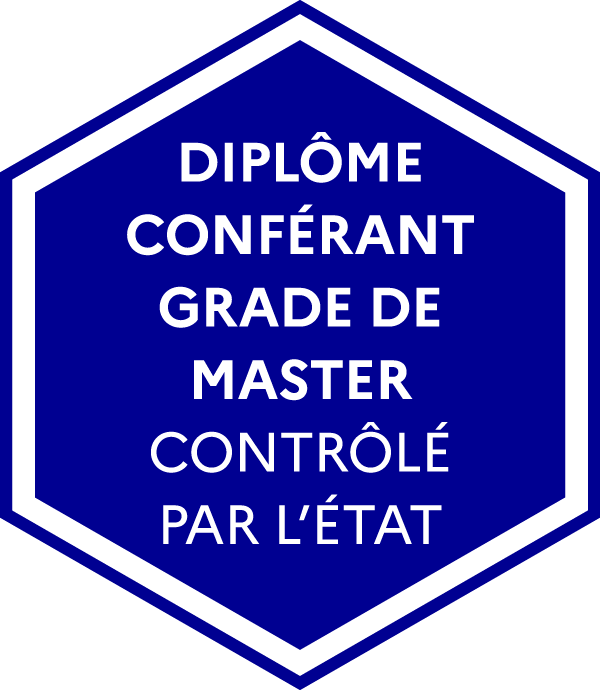Overview
Master's Degree in Engineering
National Master of Engineering Degree- Degree awarded Master
- Graduation year Bac + 5
- Graduation level Level 7
-
Location
- GRENOBLE Scientific Polygon
- Duration 3 years (6 semesters)
-
Available as
- Initial education
- Continuing education
Summary
The objective of the Physical engineering for photonics and microelectronics Specialization is to train engineers and researchers with a high level of expertise in physics and nanotechnology. Such engineers are in high demand in industrial research and development departments in the fields of microelectronics, optical devices and telecommunications and also in public research laboratories (such as CNRS, CEA and universities) for applied physics and theoretical physics.
Specificities
In the 1st year, students study physics fundamentals and physics for nanotechnology and engineering science. In the 2nd year, they choose either an applied specialty (microelectronics, optoelectronics or microwaves) or a theoretical specialty (solid-state physics, particle physics or astrophysics). Practicals and projects make up a large part of the program. The Physics and Nanoscience Specialization is able to draw on the excellence of the local and industrial expertise in this field with guest lecturers frequently providing lessons and seminars.
-
Training partners
EntreprisesAssociated companies
ST Microelectronics, Thales, Sofradir, SOITEC...
Admission
- Who should apply? Bac + 2, Bac + 3, Bac + 4
-
Available as :
- Initial education
- Continuing education
Entry requirements
To be admitted into Year 1 (at two years of post-secondary study), students must have completed two years of preparatory courses (science-track or Institute of Technology common preparatory program) or have earned an undergraduate degree from a university (in France, mainly DUT or L2).
This program is open to exchange students from abroad (courses in French).
A bachelor's degree in Physics, Applied Physics or Electrical Engineering is recommended.
Apply now
Visit the Admissions section of the school’s website (French version).
Program
- Course duration 3 years (6 semesters)
- Internships abroad
Program
The first year
2 tracks are available within the 1st year and lead to a Bachelor of Engineering science.
- Course PMP : Semester 5 - Semester 6
- Course PET : Semester 5 - Semester 6
The second year
The third year
- Semester 9 - curriculum. Choose one cursus among:
- Photonics & Semiconductors (PhSem)
- Quantum Matter (MQ) - UGA track
- Nanophysics (N2) - UGA track
(UGA tracks are not open to exchange students)
Semester 9 can be completed in one of two cross-disciplinary programs that concern all majors:
> IPEM Industrial Processes & Environmental Management
> MANINTEC Management, Innovation, Technologies
- Semester 10 - Master thesis : 30 ECTS - 5 to 6 months in industrial or academic environment.
Board of examiners
Each semester is worth 30 ECTS credits, spread out over the different courses completed. Students must obtain a grade of at least 10/20 in each course to obtain the credits.
International
- Language of instruction French
- Internship abroad Yes
International mobility
Students in this major benefit from many agreements between Grenoble Institute of Technology and partners around the globe in the form of exchange programs, dual-degree programs, internships, and more.
Visit the International section of the school’s website (in french).
Information on available scolarships
Are you a foreign student with a Master level qualification wanting to study at one of the six engineering Schools of the Grenoble Institute of Technology? You can find all the funding schemes available for you course in Grenoble on our website at Grenoble INP.Prospects
- Graduation year Bac + 5
- Graduation level Level 7
Expected learning outcomes
The objective of the Physical engineering for photonics and microelectronics Specialization is to train engineers and researchers with a high level of expertise in physics and nanotechnology.
Careers
Professions
Industrial Engineer
- Research & Development Engineer: Participates in the development and improvement of component performance in the fields of microelectronics, optoelectronics, microwave devices.
- Planning Engineer: Defines the different technological stages necessary for the production of a given product.
- Test Engineer: Responsible for product characterization using physical, electrical and optical measurements.
- Process Engineer: Responsible for the development or monitoring of a particular stage (deposition, cleaning, etching, lithography) of a given product.
Researcher in Public Research Institutions
- Applied Research. Works on subjects with a direct link to industrial needs for a particular application: the design of new laser sources, new types of data storage memory, the next generation of transistors, etc.
- Basic Research. Works mainly in condensed matter physics laboratories with large instruments (such as synchrotron and neutron reactors) on breaking research: quantum computing, carbon nanotubes, magnetic nanoparticles for medical applications,...
Other careers in production are also possible such as production engineer, product engineer, purchasing engineer and project manager.
Industries
- microelectronics,
- optical devices and telecommunications
- public research laboratories (such as CNRS, CEA and universities) for applied physics and theoretical physics.
Further learning opportunities
Education through research
Year 3 students planning to go on to a PhD program can earn a dual degree with another Master’s program relevant to their first major within the Grenoble University system.French State controlled diploma conferring a Master's degree

Download
Internship
- An internship in France or another country is required



